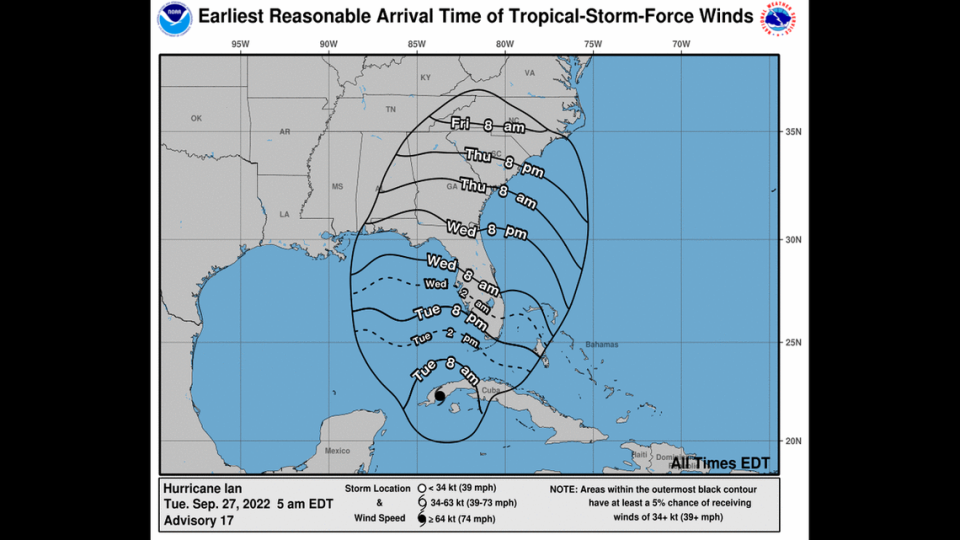Hurricane Ian rain may top 6 inches to North Carolina mountains. When will it arrive?
Remnants of Hurricane Ian are expected to dump more than 6 inches of rain in the North Carolina mountains, according to the National Weather Service.
Forecasters expect the storm to make landfall Thursday, Sept. 29, just north of Tampa, Florida, and it will likely arrive in the Carolinas by Friday.
“Unless the system gets completely blocked, we should see some heavy rainfall across the forecast area,” weather service forecasters say.

“On the current forecast track, the period of heaviest rain potential looks to be Friday night thru Saturday. ... Storm total rainfall Friday through Sunday may be 3-6 (inches) with locally higher amounts along the eastern escarpment.”
Winds between 45 and 57 mph could will be felt in the Carolinas starting 8 p.m. Thursday, Sept. 29, officials say.
“With gusty winds, coupled with saturating soils, we will continue to message the possibility of at least isolated power outages as a result of falling trees. TC tornado threat looks likely to remain low, given the slight eastward shift in track,” the National Weather Service said.
Rainfall near 10 inches and gusts exceeding 70 mph are possible on the North Carolina coast as far north as the Outer Banks, forecasters say.
The storm became a Category 3 hurricane Tuesday, Sept. 27, with maximum sustained winds of 125 mph. As much as 16 inches of rain could fall in west Central Florida when the storm makes landfall, officials say.
Ian is expected “to weaken to a tropical depression or post-tropical low” by the time it reaches the Carolinas.
Extremes hit Eastern US as snow falls in New England and Hurricane Ian nears Florida
Watch chaos within Category 4 Hurricane Fiona as aquatic drone faces 100 mph winds
Two Outer Banks homes collapse into ocean and more could fall at any time, park says

